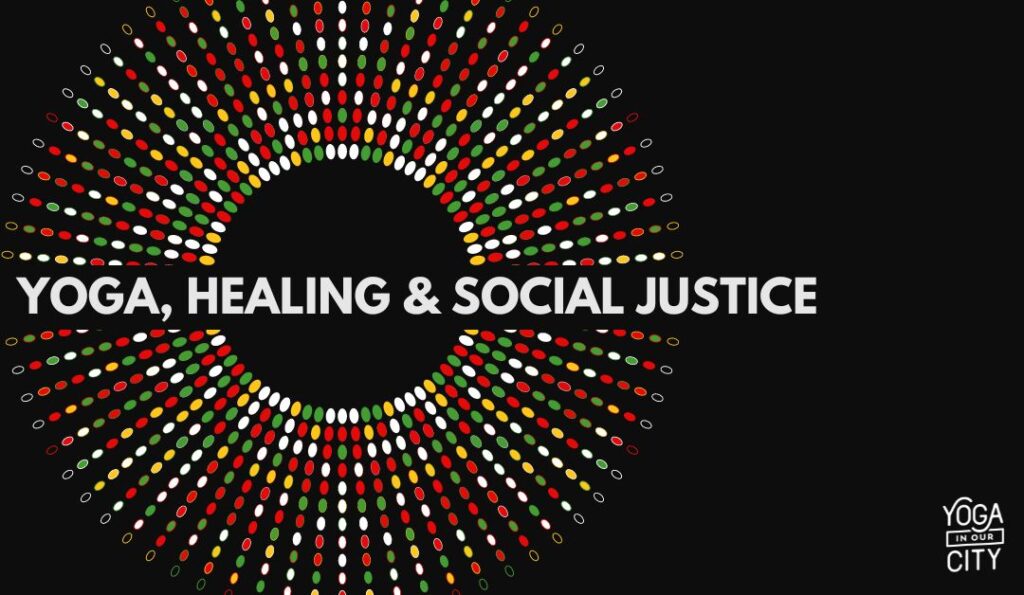
As we observe Black History Month, Yoga In Our City invites our community to explore the deep connections between yoga, Black history, and the broader quest for social justice and wellness equity. While yoga’s foundational principles champion accessibility and unity, its mainstream representation has skewed in exactly the opposite direction, towards exclusivity. Today that narrative is starting to shift, thanks to the tireless efforts of Black leaders in the wellness space and the democratizing influence of new technologies and social media.
Reclaiming Yoga’s Universal Roots
Yoga, at its core, is a discipline of connectedness, meant to be accessible to all at its very heart, irrespective of socio-economic status, race, or background. Its essence—a practice rooted in unity, self-awareness, and compassion—mirrors the values that have underpinned the African American struggle for equity and justice. Yet, for too long, yoga has been portrayed as the preserve of the privileged, creating barriers to its practice and benefits.
Pioneers of Change and Visibility
The tide is turning, with pioneers like Dianne Bondy, Jessamyn Stanley, and Michelle Cassandra Johnson leading the charge towards a more inclusive and representative yoga community. With the advocacy, teaching, and skillfulness of their work, building upon the influential Black yogis that preceded them, they are dismantling stereotypes and showcasing yoga’s role as a tool for both personal empowerment and societal change. Their efforts are increasing visibility for all Black yogis and highlighting yoga’s potential as a means for healing, self-care and liberation across diverse communities.
Dianne Bondy champions yoga for every body, advocating for diversity and accessibility within the practice.
Jessamyn Stanley redefines yoga’s mainstream image, promoting body positivity and self-acceptance.
Michelle Cassandra Johnson links yoga’s principles directly to social justice activism, with embodied approaches to racial equity work, connection and collective healing.
Speaking of pioneers of change, our Happy Warrior™ Faculty and students are hard at work shifting the yoga landscape. Their unique insight and perspective are at work every time they come together, infusing teachings and practice in powerful ways. A powerful intersection exists between yogic philosophy and relevance of the teachings in today’s world, stirring rich conversation amongst our Happy Warriors. Yoga In Our City is dedicated to raising a new generation of teachers to lead with the awareness and compassion necessary to shift access and elevate belonging in the yoga community.
A Unified Path Forward
As we celebrate the contributions of Black individuals to the yoga community this Black History Month, let’s also commit to continuing the work of making wellness spaces more inclusive and representative of all communities. The connection between yoga and social justice is a reminder that wellness is not just a personal pursuit but a collective one, where every individual has the right to health, peace, and empowerment.
We hope you’ll join us in honoring this rich history and in working towards a future where the true essence of yoga—a practice of love, unity, and justice—is accessible to everyone.
Learn more about historical pioneers and the intersection of yoga and social justice
What we’re reading now:
“Black Power Heals: Angela Davis” read in Reckon
A Q&A with Dr. Angela Rose Black on Mindful.org, “Disrupting Systemic Whiteness in the Mindfulness Movement”
“First of Its Kind Global Study of Yoga Reveals Stress Management and Mental Health Are Driving Growing Interest and Participation, Yet Many Underserved Communities Are Largely Left Out”
via Yoga Alliance
Jessamyn Stanley on nourishing the spiritual and physical body
Sebene Selassie Explores the Truth of Belonging on Mindful.org
Yoga isn’t a White activity. Rosa Parks, Angela Davis practised it for inner peace
Copyright © 2024 Yoga In Our City
Privacy Policy